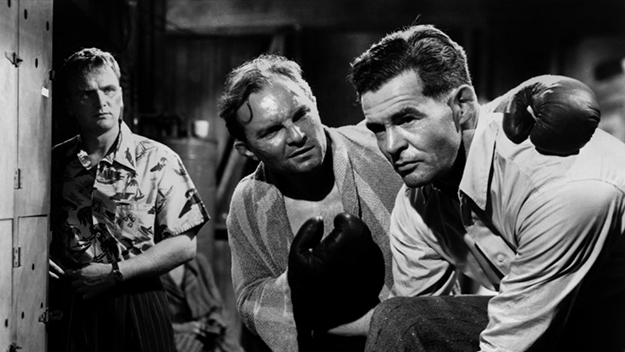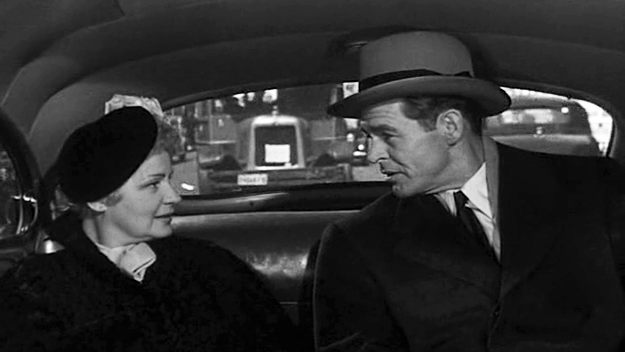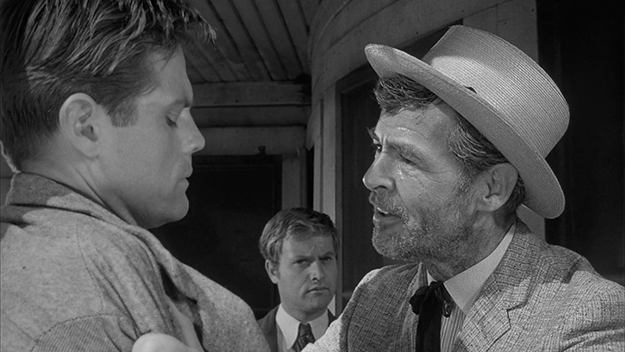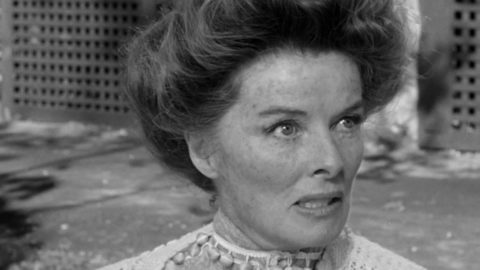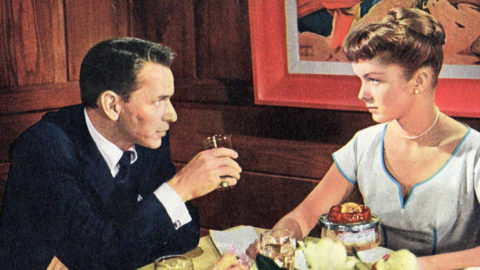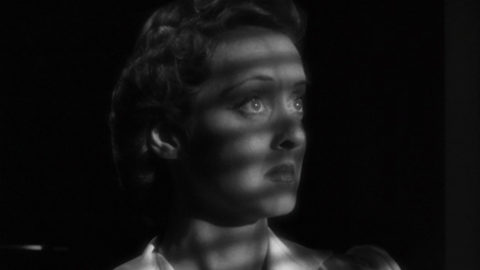TCM Diary: Robert Ryan
FILM COMMENT and Turner Classic Movies are pleased to announce a new editorial collaboration: “Film Comment Picks.” Each month, the team at FILM COMMENT will publish new essays inspired by films, directors, or actors featured in TCM’s programming.
The Set-Up
Like so many of the characters he played, Robert Ryan is the man you think you understand until he reveals a hidden side within. Capsule bios present him with some variation on the words “American actor who often played hardened cops and ruthless villains”—every part of which is the truth but not the whole truth. Ryan was American-born, but Old World in heritage and disposition. His grandparents emigrated from Tipperary, and like Eugene O’Neill, the playwright whose work he so eloquently limned, Ryan was more brooding and philosophical than his unassailably buoyant contemporaries. An actor he surely was, but also a boxer, a steamship stoker (his favorite role, in Robert Wise’s The Set-Up, was that of a boxer named Stoker), a playwright, a marine, and most significantly, an activist. For all the bigots and reactionaries he played on film, he spent his off-days crusading for civil rights and nuclear disarmament, speaking to the press about “the problems of an actor like me playing the kind of character that in real life he finds totally despicable.” And while these personages—the aforementioned cops and villains—are the ones that leap to mind at the mention of his name, a Ryan character is substantially more than just hardened and ruthless.
Ryan imbued his antagonists with deep-seated alienation and paralyzing inner conflict. They’re sometimes narrow-minded but, as embodied by this most intelligent of actors, never simple-minded. His anti-Semitic soldier in Crossfire and merciless master-at-arms in Billy Budd are tortured men, and Ryan makes it clear that their victims are merely vessels for the violence they’d like to inflict on themselves. Especially late in his career, he specialized in odd men out—reluctant members of groups who find themselves outliers because they can’t adopt the (typically anarchic) mentality of the unit. Examples include the detested by-the-book Colonel in The Dirty Dozen, the wrangler more at home with horses than people in The Professionals, and, providing the pained ambivalence that raises the film into the pantheon, The Wild Bunch’s Deke Thornton, abandoned by his comrades and forced to stalk them, an agent of the encroaching, dehumanizing modernity he so despises.
Ryan’s abnegation reached its pinnacle in his valedictory role, Larry Slade in John Frankenheimer’s production of O’Neill’s The Iceman Cometh. A onetime radical who grew disenchanted with the movement and now passes his twilight years in a waterfront saloon, Larry champions his barmates’ need for “pipe dreams” against the cold splash of truth supplied by the titular visitor—but Larry himself has abandoned any such illusions, and pines for the deliverance of death. He may be the loneliest man Ryan ever played, the culmination of a long line of anguished, sensitive characters whose articulations of the failings and falsities of men are lost on the cloddish company he’s doomed to keep.
About Mrs. Leslie
That sense of isolation was never far from Ryan; I often picture him encased in glass, trying to crash his way through, or, as the critic J.R. Jones would have it, “Even in broad daylight he seemed cloaked in shadow.” Yet Ryan’s lesser-known roles enabled him to strain that melancholy through a variety of filters. Daniel Mann’s About Mrs. Leslie (54) affords him a rare romantic role, albeit one that’s characteristically star-crossed. His George Leslie comes to us in flashbacks, as boardinghouse proprietor Vivian (Shirley Booth) recalls her past as a cabaret chanteuse who agrees to become the vacation companion of a reticent tycoon. Their frolics are confined to six weeks out of the year, with the tacit agreement that she not inquire how he spends the rest of his time. Though it remains tantalizingly opaque whether they do anything more than enjoy nature and the respite from responsibility, they grow to cherish these stolen weeks—and each other, in ways that resist classification.
We first meet George in Vivian’s café, and it is a typical Ryan framing: alone in a crowd, impervious to the enveloping merriment. But when Vivian tries out her corny-but-sincere jokes on him, the clenched features begin to relax, the granite jaw giving way to a faint but appreciative grin. When she accepts his vacation proposal and his terms (she must bring whatever honesty there is to their relationship), he is euphoric, and as they fall into a cozy domestic arrangement (“Mr. Leslie likes just a whisper of garlic in his salad dressing,” Vivian tells the cook), Ryan heartrendingly performs the plight of the solitary man learning to trust someone else. George is fascinated with the Civil War—fitting for a man with no emotional ties to his own place and time. As Vivian begins to take an interest, the conflict becomes a metaphor for their relationship: a campaign whose outcome is known, which can all the same yield fleeting discoveries—enough to sustain the patient and the ardently committed. And perhaps, too, a Pyrrhic victory or ruinous defeat.
Despite their intuitive mismatch (the 56-year-old Booth, post-Come Back Little Sheba, hardly convinces as a nightclub songbird or bewitcher of the much younger Ryan), the pair sell the unorthodox love story through their sparkling-eyed conviction. In many ways George approximates the real-life Robert Ryan, professional actor: charming but distant, gentle but sad, preferring to read a book or exchange ideas or keep his own company—and compelled to undertake a job in which he’s associated with violence and beholden to a great many people. In a letter written to his children, Ryan discusses the emotional strain and lingering effect of growing up an only child, the sole trustee of his parents’ hopes and dreams: “It is a feeling of being watched that lingers throughout life. And the feeling it engenders is escape.” One could not find a more fundamental irony than a fugitive from watchful eyes becoming a film actor—a vocation for which he stated in the letter, “I have the fear but also the function.” Perhaps his drive to reconcile the two helped him find within himself the emotional wanderlust of George Leslie.
God’s Little Acre
Chasing impossible goals is also the defining trait of Ty Ty Walden, the Georgia patriarch personified by Ryan in Anthony Mann’s jubilantly bizarre God’s Little Acre (58), from Erskine Caldwell’s lusty novel. A farmer who has let his land’s productivity lapse as he tears up the earth in search of gold, while his children pursue heedless sexual gratification (digging holes with futile abandon is a potent image), Ty Ty runs the gamut from Li’l Abner to King Lear. Only an actor of Ryan’s range and focus could prevent him from slipping into caricature. Whooping and grabbing his overalls, Ryan is sillier than he’s ever been on screen (making this a refreshing chaser to Iceman Cometh), but he never goes full Walter Brennan with the character. He tempers Ty Ty’s rascally rationalization with earnest piety in his dialogues with the Almighty—which chiefly consist of Ty Ty informing his Creator of his plans to move the parcel of land he set aside for tithing to another spot, so the dauntless digging might continue.
God’s Little Acre is as mixed a bag as ever came out of Hollywood, its supporting cast a hodgepodge of future TV stars (Jack Lord, Michael Landon, Tina Louise) and Golden Age stalwarts (B-movie mainstay Aldo Ray, Rex Ingram two decades after playing De Lawd in The Green Pastures and Lucifer Jr. in Cabin in the Sky). Calling the tune for all is Ryan, by turns hilarious (being persuaded by Buddy Hackett’s sheriff candidate to kidnap an albino and exploit his inborn divining powers) and rustically venerable (admonishing his social-climbing son for repudiating the family). He is a deluded man, refusing to cease digging after 15 fruitless years and steadfastly believing his methods to be “scientific” even as they don’t reach beyond planting his spade wherever there’s permeable ground.
But Ty Ty is also a high-spirited, optimistic man—uncommon in Ryan’s filmography—possessed of the wisdom and serenity his idle, frustrated offspring lack. It’s not what comes out of God’s little acre that counts, he advises them, but the fact that you can walk on it, call it your own, and mine it for riches. Whether he finds gold or merely old shovel heads, he is surrounded by treasure. For Ty Ty, George Leslie, and so many Ryan characters, rewards are incidental and short-lived but worth savoring, until the Iceman cometh to take them away.
Robert Ryan is the Turner Classic Movies star of the month in May. The Set-Up, About Mr. Leslie, God’s Little Acre, and many more films with Ryan will air on TCM throughout May.
Steven Mears is a regular contributor to FILM COMMENT and received his MA in film from Columbia University.



